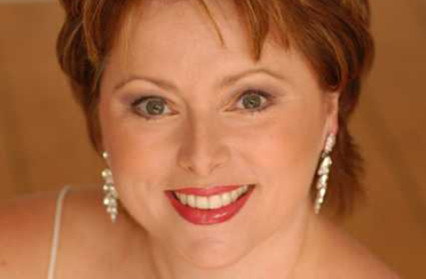St David’s Hall, Cardiff, January 10 2016
Orchestra of Welsh National Opera
Conductor: Lothar Koenigs
Soloist: Rebecca Evans (soprano)
Richard Strauss: Don Juan
Richard Strauss: Four Last Songs
Mahler: Symphony No. 4 in G
Where to end in music is often more significant than where to begin or how to go on. Experienced as a voyage in time, music with a fixed destination gives added purpose to the journey. In each of the items at this concert in the St David’s Hall international series, the end is coterminous with human life lived at varying degrees of pitch and at different stages of development: in all three, the end is death and what comes after it.
Some have fun before they get to points of no return, not least Richard Strauss’s eponymous Don Juan, who in this performance was more a reflective if dashing lothario than a bombastic one, leaping hither and thither before he slips down the swanee and permanently out of sight. Narrative music is mill’s grist for an opera orchestra and, self-fulfilling expectations aside, Lothar Koenigs and his band were hot on luscious and informative detail, so much so that this Juan seemed genuinely a libertine looking for the kind of love he didn’t first have to manhandle – and hate himself for doing so.
In Nicolas Lenau’s version of the story, on which Strauss based his tone poem, we are presented with the protagonist as destructive malcontent but it is Juan as troubled and briefly well-intentioned spirit that was convincingly depicted here in scenes that were, well, pictorial. The early theme arising in the orchestra’s depths and leading to the first of the arch-seducer’s adventures, coupled with the post-coital figure descending chromatically to describe what Strauss thought of as Juan’s sated heart, was a case in point. Clear too was the ambivalence of emotions which so often confuses love with lust, and makes the Liebeslied sound like Juan’s salvation. But he’s been up and at ’em too often, if not in this particular portrait numerically. There was about his demise, though, grounds for commiseration as the trumpets convey the mortal sword thrust by jabbing dissonantly into that minor chord, and as the following trills signal finality. Never was a come-uppance less relished.
Rebecca Evans’s way in Strauss’s Four Last Songs was to establish from the start the idea that even in Spring (Frühling) the feeling of re-birth has long been little more than a memory, so that the journey here was well advanced before it began: we joined a procession, as it were. With an often stark contrast of dynamic that might have made the interpretation sound uneven, her performance actually gave the impression of life about to expire but capable now and then of revival, which is no doubt what the composer intended. This was not so much a case of orchestral effects sinuously whirling about the soloist but gently goading her ever onwards, with its own chivvying comments to make, as in leader David Adams’s solo at a strategic point in the story; for this cycle too, has an inevitable narrative flow. Other singers have made the farewell more resilient, though each can have a different take on how to step forwards.
At the end of Mahler’s Fourth Symphony, the soprano gets to reveal a vision of heaven, or of the heavenly life, after one of the oddest journeys in music. That mis-tuned fiddle resting on a chair in front of Mr Adams’s desk foretold the second movement’s grotesque dance of death, and the orchestra invested it with an appropriately mischievous and minatory character. Throughout, and especially in the symphony’s reducing economy of means, the section work was exemplary, as was Koenigs’s measurement of tone and intensity. Between the second and third movements, clouds – or divine lights, depending on your viewpoint – have begun to alter the landscape. After the orchestra had flung open the gates of heaven as only an opera orchestra can, Ms Evans’s calculation of the difference in temperament between Strauss’s adult resignation and Mahler’s childlike innocence was to her credit. Her lack of affectation chimed perfectly with the orchestra’s assumption of mood, so subdued that the low E of the harp and basses at the very end could barely be heard. Death, indeed; but more than death: transfiguration. Strauss and Mahler had something in common.
The programme was advertised well before Lothar Koenigs announced that he would be leaving WNO as its music director at the end of the current season. Nevertheless, it was departures all round if not, in his case, a swansong.
Header photo: Rebecca Evans credit Sian Trenberth



 Enjoyed this article? Support our writers directly by buying them a coffee and clicking this link.
Enjoyed this article? Support our writers directly by buying them a coffee and clicking this link.







